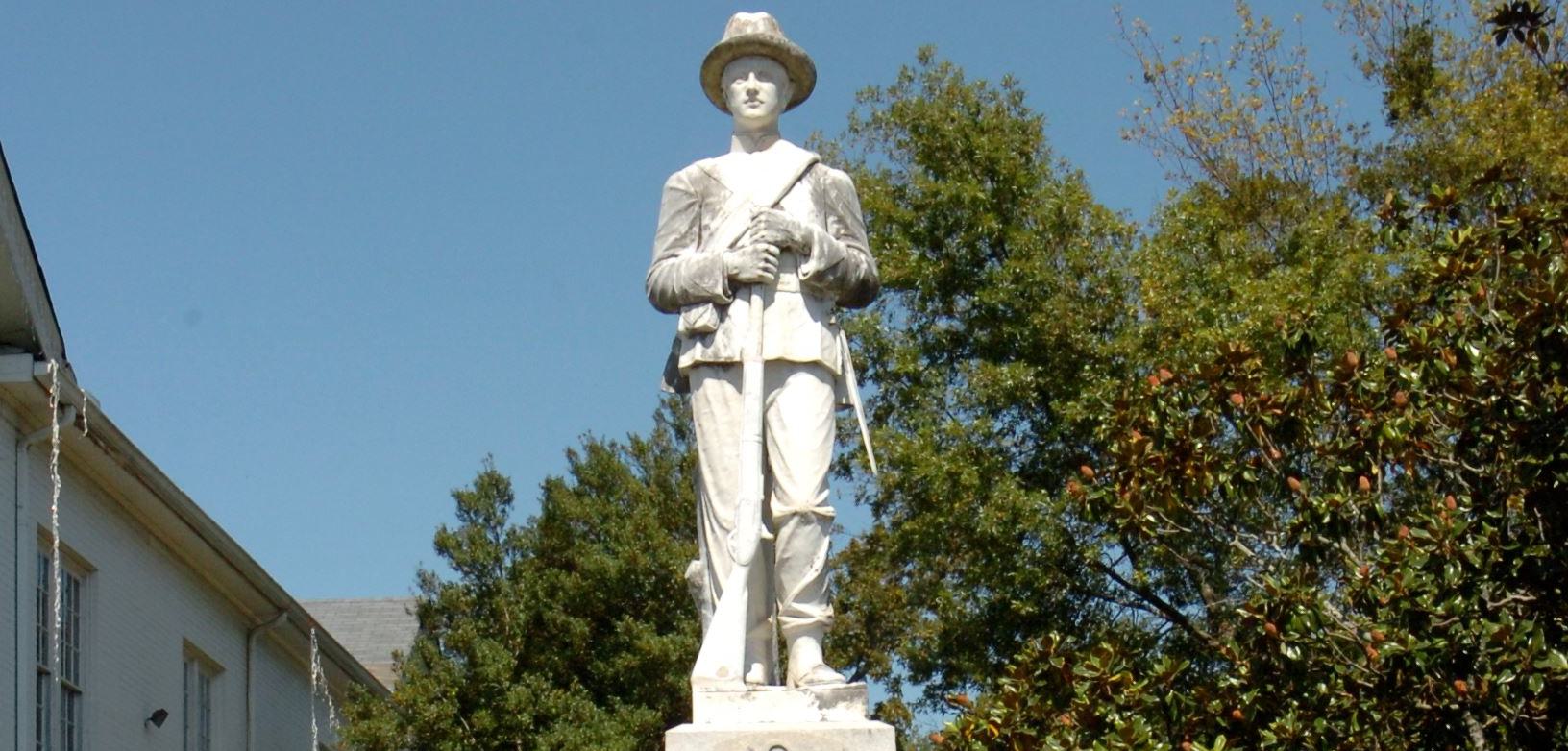On Tuesday, the Senate Governmental Affairs Committee will consider legislation authorizing the Alabama Attorney General’s office to commence civil litigation for violations of the Alabama Memorial Preservation Act of 2017. The legislation also makes other changes to the controversial legislation and authorizes the construction of a statue of deceased Congressman John R. Lewis (D-Georgia) in Selma.
Senate Bill 54 is sponsored by State Sen. Gerald Allen (R-Tuscaloosa).
The Senate Governmental Affairs Committee is chaired by Sen. Jimmy Holley (R-Elba). The Committee meets in the Finance and Taxation room (on the eighth floor of the Statehouse) at 1 p.m.
According to the synopsis, “Under existing law, the Alabama Memorial Preservation Act of 2017 prohibits architecturally significant buildings, memorial buildings, memorial streets, and monuments that are located on public property, and have been so situated for 40 or more years, from being relocated, removed, altered, renamed, or otherwise disturbed and provides penalties for violations. This bill would require a controlling governmental entity that replaces a memorial building to maintain the original name or erect a marker memorializing the name.
“This bill would provide that a petition for waiver is deemed denied if the Committee on Alabama Monument Protection fails to act on an application for waiver within 90 days. This bill would revise the penalties for violations and would authorize the Attorney General to commence a civil action. This bill would also require the Alabama Historical Commission to oversee the design and construction of a statue of civil rights leader John Lewis at the entrance to the Edmund Pettus Bridge."
There would be a $5,000 per day fine for violating the law.
"The Attorney General may also commence a civil action to enjoin a threatened or continuing violation of this article," the bill states. "Upon written request of the entity and the submission of supporting documentation that restoration has begun, the Attorney General may stay the fine pending complete restoration. The fine shall be collected by the Attorney General, forwarded by his or her office to the State Treasurer, and deposited into the Alabama State Historic Preservation Fund created in Section 41-9-255.”
While the Memorial Preservation Act applies to all historical buildings and memorials, the monuments that are at the center of this controversy are Confederate monuments and memorials enacted post Reconstruction as Southerners regained control of state and local governments and began to immortalize Confederate heroes and veterans.
Many municipalities, particularly those now controlled by Black city governments, resent the Confederate monuments, many of them over 100 years old. These governments claim that they are celebrating slavery and oppression of Black Alabamians by their White masters in the antebellum south and in many cases were erected by the same generation that passed segregation laws marginalizing the rights of Black Alabamians.
The Alabama League of Municipalities has argued that local governments should have local control and not have their public places regulated by a commission in Montgomery.
Supporters of the Memorial Preservation Act argue that the Confederate veterans and heroes’ monuments celebrate the heroism and sacrifice of tens of thousands of Alabamians who bled and died for the state during the Civil War and that those sacrifices should never be forgotten. They oppose the systematic removal and desecration of Confederate monuments.
U.S. Rep. John R. Lewis was born in Troy and was a colleague of the Rev. Martin Luther King Jr. He and other civil rights leaders attempted to lead a voting rights march from Selma to Montgomery on Sunday, March 7, 1965. The then all-White Alabama State Troopers (many of them mounted on horseback), local law enforcement, and White civilian volunteers, acting on the orders of then-Gov. George C. Wallace (D), attacked the marchers with overwhelming brute force to prevent them from being able to cross the Edmund Pettus Bridge in Selma. Dozens of marchers were injured in the beatings that ensued. The event became known as “Bloody Sunday” and horrified Americans who watched the events on television news broadcasts. That march and two subsequent marches led by King (this time with federal protection), helped lead to the passage of the landmark Voting Rights Act of 1965. The “Boy from Troy,” as Lewis was called by his mentor, King, moved to Georgia and was elected to Congress. Lewis passed away on July 17, 2020.
In addition to SB54, the committee will consider: SB53, SB33, SB34, SB36, SB42, SB44, SB46, SB47, SB52, SB56, SB58, SB64, SB65, SB68, and SB69.
Any bills that receive a favorable report by the committee on Tuesday could be considered by the full Senate as early as this week.
Tuesday will be day three of the Alabama Regular Legislative Session. The legislature is limited to just 30 legislative days in a regular session and no more than 120 calendar days.
To connect with the author of this story, or to comment, email brandon.moseley@1819News.com.










